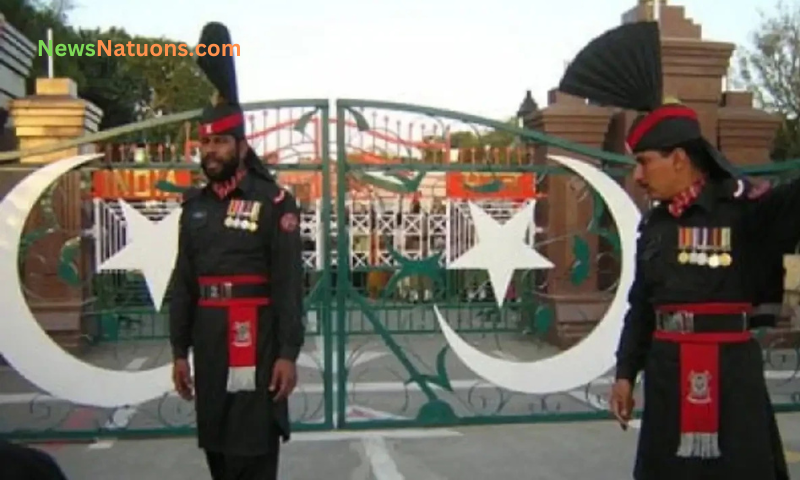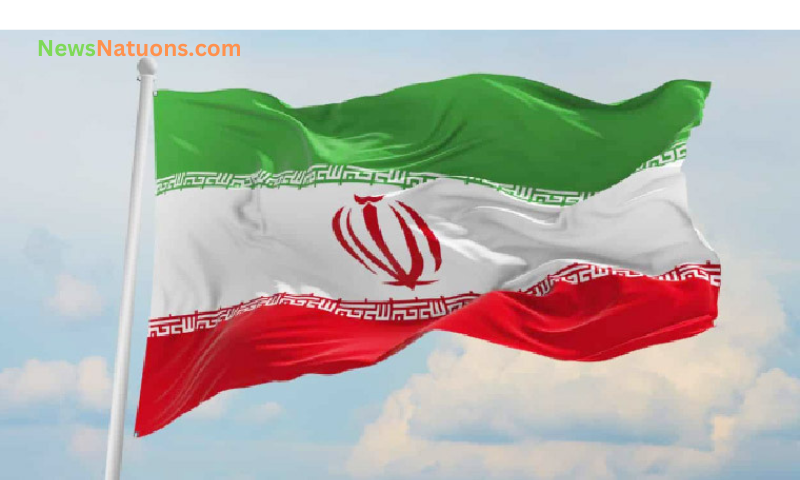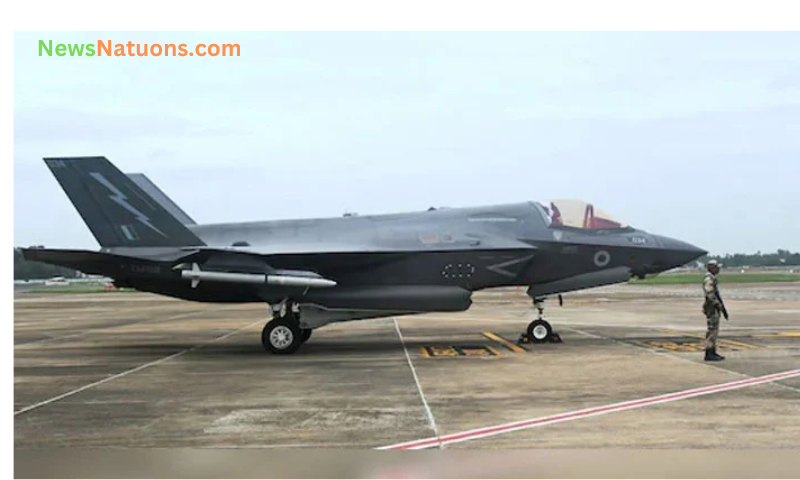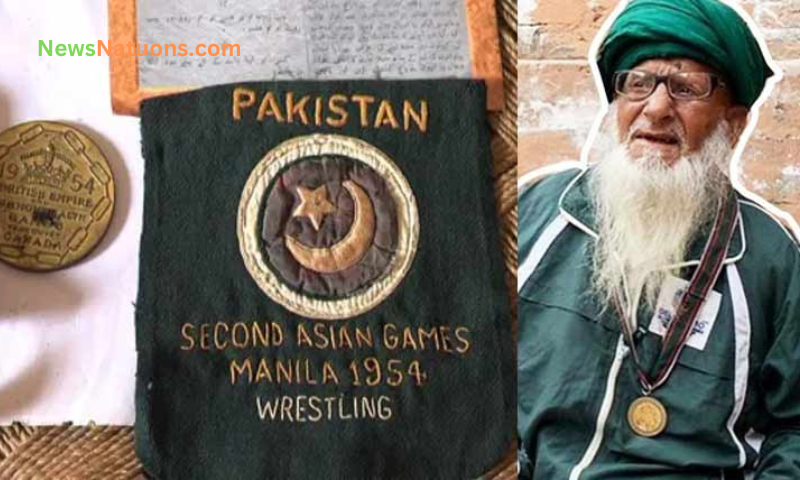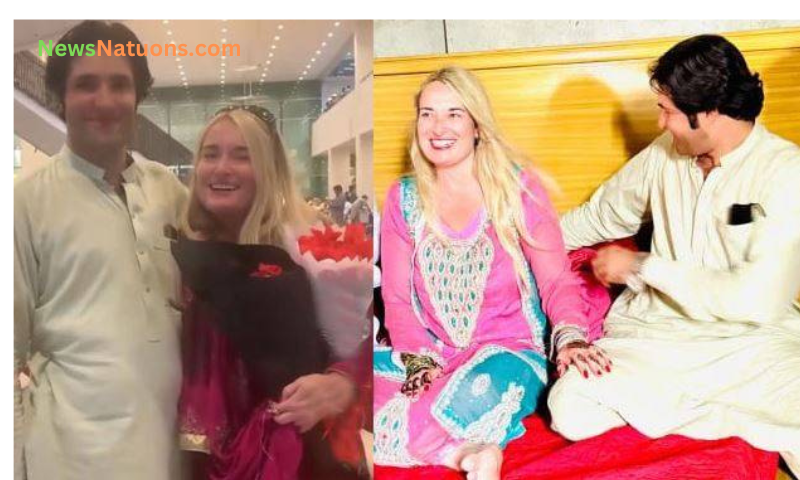The closure of the India-Pakistan border, triggered by escalating tensions following the April 22, 2025, terror attack in Pahalgam, Jammu and Kashmir, which claimed 26 lives, has not halted the repatriation of citizens stranded in both countries. On July 3, 2025, 46 Pakistani nationals, including 35 members of a Hindu family, returned to Pakistan via the Wagah-Attari border, as reported by The Express Tribune and Geo.tv (The Express Tribune, July 4, 2025; Geo.tv, July 4, 2025). This movement is part of a broader exchange, with approximately 1,660 Pakistanis repatriated from India since March 2025 and 1,687 Indian citizens returning from Pakistan between April 24 and April 29, 2025 (The Economic Times, April 28, 2025). The process, facilitated despite revoked visas and heightened security, underscores humanitarian efforts amid strained bilateral relations. Social media, particularly X, has highlighted these crossings, with posts like @ExpressNewsPK noting the emotional reunions at Wagah (X post, July 4, 2025).
Background of the Border Closure
The Attari-Wagah border, a key crossing near Amritsar, India, and Lahore, Pakistan, was shut on April 30, 2025, following the Pahalgam attack, which India attributed to Pakistan-based terrorists (NDTV, May 2, 2025). India revoked all short-term visas for Pakistani nationals, setting deadlines for their departure: April 26 for SAARC visas, April 27 for 12 other visa categories, and April 29 for medical visas (The Hindu, May 2, 2025). Pakistan reciprocated by canceling visas for Indian citizens and closing the border, leaving many stranded (The Indian Express, May 2, 2025). The attack, claimed by The Resistance Front, a proxy of Lashkar-e-Taiba, prompted India’s Operation Sindoor, targeting sites in Pakistan, further escalating tensions (Al Jazeera, June 30, 2025). Despite the closure, both nations have allowed limited repatriation on humanitarian grounds, particularly for families, students, and those requiring medical treatment.
The Return of the Hindu Family
Among the 46 Pakistanis who crossed back into Pakistan on July 3, 2025, was a Hindu family from Sindh, comprising women and children, who had traveled to India in 2024 for personal reasons (The Express Tribune, July 4, 2025). The family, like many others, faced challenges returning due to the sudden visa cancellations following the Pahalgam attack. Indian authorities, under pressure to deport Pakistani nationals, facilitated their return via Wagah, as reported by Geo.tv (July 4, 2025). The emotional weight of these repatriations was evident in social media posts, with @UsmanBhatti40 sharing images of tearful reunions at the border (X post, July 4, 2025). The family’s return highlights the broader plight of Pakistani Hindus caught in the crossfire of diplomatic tensions, many of whom maintain cultural and familial ties across the border.
Kashmiri Students and Other Repatriations
In recent weeks, students from Pakistan-administered Kashmir studying in Pakistani educational institutions have also been repatriated via Wagah (Geo.tv, July 4, 2025). These students, along with other Pakistani nationals, faced abrupt visa cancellations, disrupting their academic and personal lives. Since March 2025, approximately 1,660 Pakistanis, including elderly individuals, women, and students, have returned from India (The Economic Times, April 28, 2025). Similarly, between April 24 and April 29, 2025, 1,687 Indian citizens, including tourists, pilgrims, and medical patients, returned from Pakistan (Hindustan Times, April 28, 2025). The repatriation process, managed by Pakistan Rangers and India’s Border Security Force, involves rigorous document checks to ensure compliance with immigration protocols (The Economic Times, April 28, 2025).
Humanitarian Challenges and Family Separations
The sudden border closure and visa revocations have caused significant humanitarian challenges. Many Pakistani nationals in India, particularly those on medical visas, were forced to abandon treatments, while families with mixed nationalities faced heart-wrenching separations (NDTV, May 2, 2025). For instance, a woman from Uttar Pradesh married to a Pakistani national was stopped at Wagah with her Indian passport, while her children were ordered to leave, causing distress (NDTV, May 1, 2025). Pakistan’s Foreign Office criticized India’s actions, noting the impact on vulnerable groups (The Express Tribune, May 2, 2025). Despite these challenges, Pakistan announced on May 2, 2025, that it would keep the Wagah border open for its stranded citizens, provided Indian authorities cooperate (The Hindu, May 2, 2025).
Pakistan’s Stance and Border Operations
Pakistan’s decision to allow repatriation reflects a humanitarian gesture amid strained relations. The Foreign Office stated, “The Wagah border will remain open for Pakistani nationals seeking to return,” emphasizing cooperation with Indian authorities (The Express Tribune, May 2, 2025). On May 2, 2025, 27 Pakistanis returned via Wagah, followed by the 46 on July 3, indicating ongoing efforts to facilitate crossings (The Express Tribune, May 2, 2025). However, the border remains closed for regular travel, with both nations maintaining strict security measures. The daily Beating Retreat ceremony at Wagah, a symbol of rivalry and cooperation, was briefly halted but resumed on May 5, 2025, despite the closure (Outlook India, May 6, 2025).
India’s Response and Security Measures
India’s decision to close the Attari-Wagah border was part of a broader response to the Pahalgam attack, which included canceling all Pakistani visas and ordering deportations (NDTV, May 1, 2025). Home Minister Amit Shah urged state governments to identify and deport Pakistani nationals, leading to over 627 departures, including diplomats, by April 27, 2025 (Hindustan Times, April 28, 2025). The closure has disrupted cross-border trade and travel, with long-term visa holders facing uncertainty (The Economic Times, April 28, 2025). India’s military actions, including Operation Sindoor, which targeted alleged terrorist infrastructure, have further strained relations, with Pakistan claiming civilian casualties (Al Jazeera, June 30, 2025).
Social and Cultural Impact
The repatriation process has resonated deeply in both countries, where cross-border ties—through marriage, religion, or education—are common. The return of Pakistani Hindus, in particular, highlights the challenges faced by minority communities navigating geopolitical tensions. Social media posts, such as @PakPassion’s coverage of the July 3 repatriation, reflect a mix of relief and frustration among Pakistanis (X post, July 4, 2025). In India, the deportations have sparked debates about humanitarian considerations, with some criticizing the blanket visa cancellations (The Indian Express, May 2, 2025). The incident underscores the delicate balance between security and compassion in India-Pakistan relations.
Ongoing Implications
The continued repatriation of citizens, despite the border closure, demonstrates both nations’ commitment to addressing humanitarian needs amid political strife. However, the process remains fraught with challenges, including family separations and disrupted lives. The Pahalgam attack and subsequent military escalations have deepened mistrust, making long-term border reopening unlikely (Al Jazeera, June 30, 2025). As reported by The Hindu (May 2, 2025), Pakistan’s willingness to keep Wagah open for repatriation offers a glimmer of hope, but the broader diplomatic impasse persists. The stories of those crossing back, like the Sindh Hindu family, highlight the human cost of such conflicts.
A Fragile Path Forward
The repatriation of 46 Pakistanis on July 3, 2025, via Wagah is a small but significant step in addressing the fallout of the India-Pakistan border closure. While the return of citizens, including students and families, offers relief, it also underscores the broader challenges of strained bilateral ties. As reported by Geo.tv (July 4, 2025), the process reflects a rare moment of cooperation in a tense climate. Moving forward, both nations face the task of balancing security concerns with humanitarian obligations, ensuring that citizens caught in the crossfire are not left stranded. The Wagah border, a historic symbol of division and connection, continues to serve as a lifeline for those seeking to return home.
22 اپریل 2025 کو جموں و کشمیر کے پاہلگام میں ہونے والے دہشت گرد حملے، جس میں 26 افراد ہلاک ہوئے، کے بعد پاک-بھارت سرحد کی بندش کے باوجود دونوں ملکوں میں پھنسے شہریوں کی واپسی کا سلسلہ جاری ہے۔ 3 جولائی 2025 کو 46 پاکستانی شہری، جن میں 35 ہندو خاندان کے افراد شامل تھے، واہگہ-اٹاری بارڈر کے راستے پاکستان واپس پہنچے، جیسا کہ دی ایکسپریس ٹریبیون اور جیو ٹی وی نے رپورٹ کیا (دی ایکسپریس ٹریبیون, 4 جولائی 2025؛ جیو ٹی وی, 4 جولائی 2025)۔ مارچ 2025 سے اب تک تقریباً 1,660 پاکستانی بھارت سے واپس آئے ہیں، جبکہ 24 سے 29 اپریل 2025 تک 1,687 بھارتی شہری پاکستان سے واپس گئے (دی اکنامک ٹائمز, 28 اپریل 2025)۔ یہ عمل، ویزوں کی منسوخی اور سخت سیکیورٹی کے باوجود، کشیدہ دو طرفہ تعلقات کے درمیان انسانی ہمدردی کی کوششوں کو اجاگر کرتا ہے۔ ایکس پر @ExpressNewsPK جیسی پوسٹس نے واہگہ پر جذباتی ملاپ کو نمایاں کیا (ایکس پوسٹ, 4 جولائی 2025)۔
سرحد کی بندش کا پس منظر
اٹاری-واہگہ بارڈر، جو امرتسر، بھارت اور لاہور، پاکستان کے قریب ایک اہم گزرگاہ ہے، 30 اپریل 2025 کو پاہلگام حملے کے بعد بند کر دیا گیا، جسے بھارت نے پاکستان سے منسلک دہشت گردوں سے جوڑا (این ڈی ٹی وی, 2 مئی 2025)۔ بھارت نے پاکستانی شہریوں کے تمام قلیل مدتی ویزوں کو منسوخ کر دیا، جن کے لیے روانگی کی آخری تاریخیں طے کی گئیں: سارک ویزوں کے لیے 26 اپریل، دیگر 12 ویزا اقسام کے لیے 27 اپریل، اور میڈیکل ویزوں کے لیے 29 اپریل (دی ہندو, 2 مئی 2025)۔ پاکستان نے جوابی طور پر بھارتی شہریوں کے ویزوں کو منسوخ کیا اور سرحد بند کر دی، جس سے بہت سے لوگ پھنس گئے (دی انڈین ایکسپریس, 2 مئی 2025)۔ حملے کی ذمہ داری لشکر طیبہ کے پراکسی گروپ دی ریزسٹنس فرنٹ نے قبول کی، جس کے نتیجے میں بھارت نے آپریشن سندور شروع کیا، جو پاکستان میں اہداف کو نشانہ بناتا تھا (الجزیرہ, 30 جون 2025)۔
ہندو خاندان کی واپسی
3 جولائی 2025 کو پاکستان واپس آنے والے 46 افراد میں سندھ سے تعلق رکھنے والا ایک ہندو خاندان شامل تھا، جس میں خواتین اور بچے تھے، جو 2024 میں ذاتی وجوہات کی بنا پر بھارت گئے تھے (دی ایکسپریس ٹریبیون, 4 جولائی 2025)۔ پاہلگام حملے کے بعد ویزوں کی اچانک منسوخی کی وجہ سے اس خاندان کو واپسی میں مشکلات کا سامنا کرنا پڑا۔ بھارتی حکام نے واہگہ کے راستے ان کی واپسی کو ممکن بنایا (جیو ٹی وی, 4 جولائی 2025)۔ @UsmanBhatti40 کی ایکس پوسٹس نے سرحد پر جذباتی ملاپ کی تصاویر شیئر کیں (ایکس پوسٹ, 4 جولائی 2025)۔ اس خاندان کی واپسی پاکستانی ہندوؤں کی مشکلات کو اجاگر کرتی ہے، جو سفارتی تناؤ کے درمیان سرحد پار خاندانی رشتوں کو برقرار رکھتے ہیں۔
کشمیری طلبہ اور دیگر واپسیاں
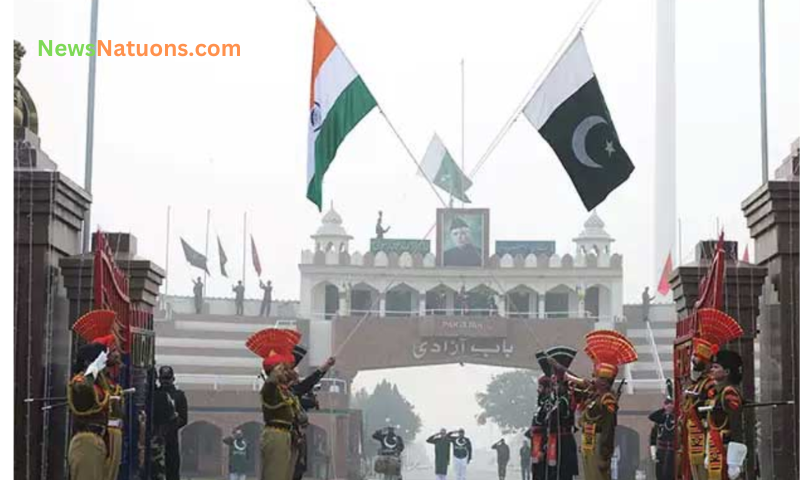
حالیہ ہفتوں میں، پاکستانی زیر انتظام کشمیر کے طلبہ، جو پاکستانی تعلیمی اداروں میں زیر تعلیم تھے، بھی واہگہ کے راستے واپس آئے ہیں (جیو ٹی وی, 4 جولائی 2025)۔ مارچ 2025 سے اب تک تقریباً 1,660 پاکستانی، جن میں بزرگ، خواتین، اور طلبہ شامل ہیں، بھارت سے واپس آئے (دی اکنامک ٹائمز, 28 اپریل 2025)۔ اسی طرح، 24 سے 29 اپریل 2025 تک، 1,687 بھارتی شہری، جن میں سیاح، زائرین، اور مریض شامل تھے، پاکستان سے واپس گئے (ہندوستان ٹائمز, 28 اپریل 2025)۔ پاکستان رینجرز اور بھارت کی بارڈر سیکیورٹی فورس نے امیگریشن پروٹوکولز کی تعمیل کے لیے سخت دستاویزی جانچ کی (دی اکنامک ٹائمز, 28 اپریل 2025)۔
انسانی چیلنجز اور خاندانی جدائیاں
سرحد کی اچانک بندش اور ویزوں کی منسوخی نے انسانی مسائل کو جنم دیا۔ بھارت میں موجود پاکستانی شہریوں، خاص طور پر میڈیکل ویزوں والوں، کو علاج چھوڑنا پڑا، جبکہ مخلوط قومیت والے خاندانوں کو دل دہلا دینے والی جدائیوں کا سامنا کرنا پڑا (این ڈی ٹی وی, 2 مئی 2025)۔ مثال کے طور پر، اتر پردیش کی ایک خاتون، جو پاکستانی شہری سے شادی شدہ تھی، کو اپنے بھارتی پاسپورٹ کی وجہ سے واہگہ پر روک دیا گیا، جبکہ اس کے بچوں کو جانے کا حکم دیا گیا (این ڈی ٹی وی, 1 مئی 2025)۔ پاکستان کی وزارت خارجہ نے بھارت کے اقدامات کی تنقید کی (دی ایکسپریس ٹریبیون, 2 مئی 2025)۔
پاکستان کا موقف اور بارڈر آپریشنز
پاکستان کا واپسی کی اجازت دینے کا فیصلہ کشیدہ تعلقات کے درمیان انسانی ہمدردی کا مظہر ہے۔ وزارت خارجہ نے کہا، “واہگہ بارڈر پاکستانی شہریوں کی واپسی کے لیے کھلا رہے گا” (دی ایکسپریس ٹریبیون, 2 مئی 2025)۔ 2 مئی 2025 کو 27 پاکستانی واپس آئے، اور 3 جولائی کو 46، جو جاری کوششوں کی نشاندہی کرتا ہے (دی ایکسپریس ٹریبیون, 2 مئی 2025)۔ تاہم، سرحد معمول کے سفر کے لیے بند ہے، اور دونوں ممالک سخت سیکیورٹی اقدامات برقرار رکھے ہوئے ہیں۔ واہگہ پر روزانہ بیٹنگ ریٹریٹ تقریب، جو دشمنی اور تعاون کی علامت ہے، مختصر تعطل کے بعد 5 مئی 2025 کو دوبارہ شروع ہوئی (آؤٹ لک انڈیا, 6 مئی 2025)۔
بھارت کا ردعمل اور سیکیورٹی اقدامات
بھارت کا اٹاری-واہگہ بارڈر بند کرنے کا فیصلہ پاہلگام حملے کے ردعمل کا حصہ تھا، جس میں پاکستانی ویزوں کی منسوخی اور ڈی پورٹیشن کے احکامات شامل تھے (این ڈی ٹی وی, 1 مئی 2025)۔ وزیر داخلہ امیت شاہ نے پاکستانی شہریوں کی شناخت اور ڈی پورٹیشن کی ہدایت کی، جس کے نتیجے میں 27 اپریل 2025 تک 627 افراد، بشمول سفارت کار، واپس گئے (ہندوستان ٹائمز, 28 اپریل 2025)۔ آپریشن سندور نے پاکستانی اہداف کو نشانہ بنایا، جس سے تعلقات مزید خراب ہوئے (الجزیرہ, 30 جون 2025)۔
سماجی اور ثقافتی اثرات
واپسی کا عمل دونوں ممالک میں گہرائی سے گونجتا ہے، جہاں شادی، مذہب، یا تعلیم کے ذریعے سرحد پار رشتے عام ہیں۔ پاکستانی ہندوؤں کی واپسی اقلیتی کمیونٹیوں کی مشکلات کو اجاگر کرتی ہے۔ @PakPassion کی ایکس پوسٹس نے 3 جولائی کی واپسی پر راحت اور مایوسی کو نمایاں کیا (ایکس پوسٹ, 4 جولائی 2025)۔ بھارت میں، ویزوں کی منسوخی پر انسانی ہمدردی کے بارے میں بحثیں ہوئیں (دی انڈین ایکسپریس, 2 مئی 2025)۔
جاری مضمرات
سرحد کی بندش کے باوجود شہریوں کی واپسی سے انسانی ضروریات کو ترجیح دینے کی کوشش ظاہر ہوتی ہے۔ تاہم، خاندانی جدائیاں اور متاثرہ زندگیاں چیلنجز ہیں۔ پاہلگام حملے نے عدم اعتماد کو گہرا کیا، جس سے سرحد کے دوبارہ کھلنے کا امکان کم ہے (الجزیرہ, 30 جون 2025)۔ دی ہندو (2 مئی 2025) کے مطابق، پاکستان کا واہگہ کو واپسی کے لیے کھلا رکھنا امید کی کرن ہے، لیکن سفارتی تعطل برقرار ہے۔
آگے کا نازک راستہ
3 جولائی 2025 کو واہگہ کے راستے 46 پاکستانیوں کی واپسی پاک-بھارت سرحد کی بندش کے اثرات سے نمٹنے کا ایک اہم قدم ہے۔ طلبہ اور خاندانوں کی واپسی راحت دیتی ہے، لیکن یہ دو طرفہ تعلقات کی نازک حالت کو بھی اجاگر کرتی ہے۔ جیو ٹی وی (4 جولائی 2025) کے مطابق، یہ عمل کشیدہ ماحول میں تعاون کا ایک نادر لمحہ ہے۔ دونوں ممالک کو سیکیورٹی اور انسانی ذمہ داریوں میں توازن قائم کرنے کا چیلنج درپیش ہے، تاکہ پھنسے ہوئے شہریوں کو مشکلات نہ ہوں۔ واہگہ بارڈر، جو تقسیم اور رابطے کی علامت ہے، گھر واپس آنے والوں کے لیے ایک لائف لائن بنی ہوئی ہے۔







